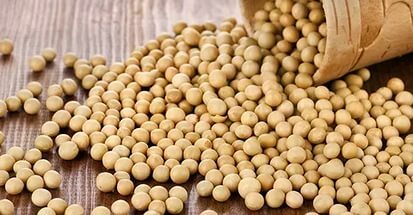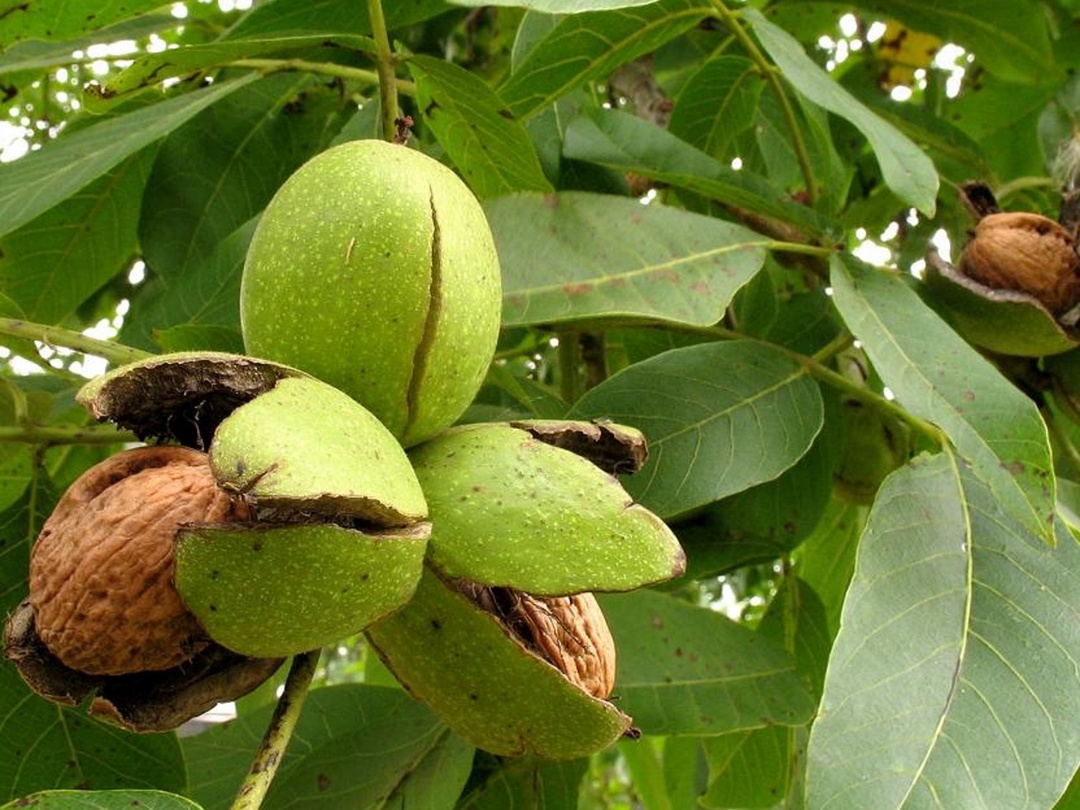Capers: benefit and harm
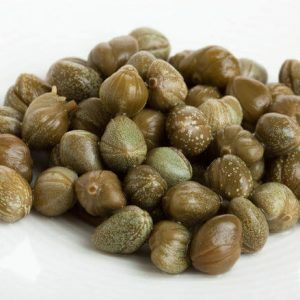
Capers are flower buds and fruits of the same name with olive color and small size.In our country they are not very popular, but are widely used in the kitchens of the Mediterranean countries.Known capers from the times of ancient Greece, whose inhabitants used them as an aperitif to main dishes. These plants have a tart, spicy, island taste, reminiscent of mustard - it is similar to capers and smell due to the high content of mustard oil.
In addition to cooking, capers are also used in folk medicine.The population of the coast of the Mediterranean Sea since ancient times treated them with head and joint pains, liver and spleen diseases, goiter. Such application became possible due to the fact that these plants contain a large number of useful substances.
Composition and calorie content
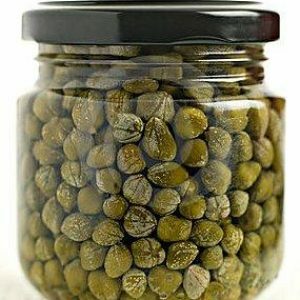 One of the useful compounds contained in capers is visible to the naked eye.It is chlorophyll, giving buds a green tint. This substance is a plant analogue of hemoglobin, it is a powerful antioxidant and effectively purifies blood, improving blood flow and giving the skin freshness.
One of the useful compounds contained in capers is visible to the naked eye.It is chlorophyll, giving buds a green tint. This substance is a plant analogue of hemoglobin, it is a powerful antioxidant and effectively purifies blood, improving blood flow and giving the skin freshness.
Due to the presence of 18 g of protein per 100 g of product, capers become an excellent addition to the vegetarian diet . The composition also includes fats( mustard oil) and fatty acids, carbohydrates( including pectins), glycosides and saponins, enzymes and essential oils.
Vitamins and minerals are contained in capers:
- vitamins A, K, P, group B, tocopherol, ascorbic acid;
- iodine, zinc and iron in large quantities, as well as other microelements;
- macronutrients - magnesium, calcium, phosphorus, sodium, potassium.
The energy value of capers is 23 kcal per 100 g , but you can eat a lot if you do not control yourself - essential oils kindle appetite.
Useful properties
One of the glycosides included in the plant is rutozid, the content of which reaches 0.33%, or 332 mg per 100 g of capers - more than in any other product. The plant is needed for protection from ultraviolet radiation;In the human body, it exhibits a variety of properties:
- improves the ability of platelets to "stick together";
- reduces the permeability of the capillary walls;
- helps fight inflammation;
- reduces the risk of blood clots;
- enhances the absorption of iodine by the thyroid gland.
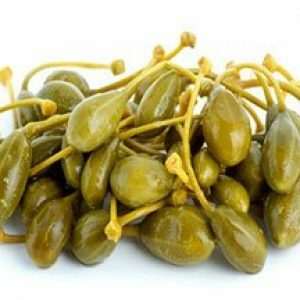 Thanks to these properties, capers are useful in various diseases associated with the circulatory system: hypertension, microangiopathy, hemorrhoids, varicose veins .It is recommended to eat them more often for people with an increased risk of myocardial infarction and stroke.
Thanks to these properties, capers are useful in various diseases associated with the circulatory system: hypertension, microangiopathy, hemorrhoids, varicose veins .It is recommended to eat them more often for people with an increased risk of myocardial infarction and stroke.
Decoctions from various parts of the plant are used to accelerate the healing of wounds, treat diabetes mellitus, reduce inflammation in the mouth, and get rid of toothache .Capers have a positive effect on the state of the nervous system, so the oil from their fruits can be used in massage for better relaxation or as an aromatherapy.
Rutoside, like chlorophyll, is a strong antioxidant.Along with quercetin, these substances reduce the risk of developing cancer, help the body fight inflammation and protect against allergy. It should be noted that the antioxidants in capers are many times greater than in raspberries and apples, which, according to popular belief, are rich in them.
A large set of vitamins in capers helps to strengthen immunity.For a better effect, capers should be added to salads along with spinach and olive oil.Supplement these products with sweet peppers, olives and cherry tomatoes.
Harm and contraindications
As with other spicy plants, capers are not recommended for pregnant and lactating women. Do not eat their people suffering from:
- of inflammatory and ulcerative gastrointestinal diseases;
- individual intolerance components.
Since capers are often used in a salty form and added to even more salty dishes, the abuse of this plant can occur an attack of hypertension.Therefore, when adding capers to your diet, you need to closely monitor the water-salt balance.
Tips and Tricks
 Capers lose their natural taste when pickling, so they are filled not with an ordinary marinade, but with olive oil with spices .In this form, the product can be bought only in Greece and Spain, in our stores you can find only capers in vinegar, necessary for better preservation of plants - otherwise they would simply not have reached the Russian shelves.
Capers lose their natural taste when pickling, so they are filled not with an ordinary marinade, but with olive oil with spices .In this form, the product can be bought only in Greece and Spain, in our stores you can find only capers in vinegar, necessary for better preservation of plants - otherwise they would simply not have reached the Russian shelves.
Partly return the taste can be - immediately after purchasing the factory marinade you need to pour, rinse the fruits, dry and pour warm oil with the addition of rosemary, oregano, oregano and thyme.In the Caucasus and Crimea, capers can be harvested independently - there they grow in the wild.Marinate them you need for the same recipe and do not touch for 3 months - so they will completely soak up and acquire their characteristic color.
If you have to buy capers in a store, you should choose bigger ones - small ones can be confused with nasturtium, which looks similar, but it's much less useful.Store capers for several months at a temperature of about + 5 ° C.


